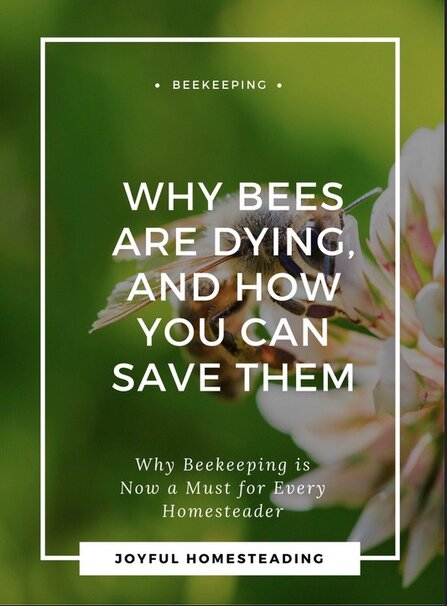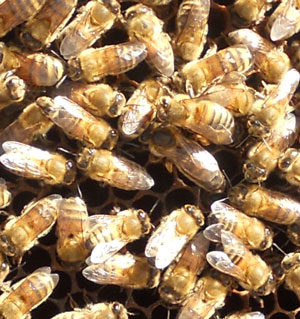What is CCD?
What is CCD? It's the acronym for colony collapse disorder, a mystifying condition causing millions of bees to simply vanish, threatening the world's food supply. But the good news is, we who are self reliant have a way to save the bees.

Colony collapse disorder first appeared in 2006 when commercial beekeepers - during routine inspections of their hives - discovered their bees has simply disappeared, usually leaving a hive full of honey behind.
Some beekeepers have lost between 50 and 90 percent of their hives, often within a matter of weeks.

Considering that honey bees are a valuable asset in productive crops, often increasing profits by billions of dollars, this is a serious issue.
What is CCD's Cause?
No one is quite sure what causes CCD, but theories have included signals from cell phone towers (eventually disproven), viruses and mites. Some have put the blame on the extreme stress commercial beekeepers put on their bees.
Commercial pollination is big business, and many commercial beekeepers keep their bees working year-round by packing them up in the winter and moving them to Texas and California, tricking them into thinking it's an early spring.
The bees never get a chance to hibernate, rest and consume the protein they need for good health. Plus, they are exposed to other bees from around the country. As a result, they are vulnerable to viruses and can easily become ill.
However, another culprit could very likely be the GMOs that are now being grown virtually everywhere in the United States as well as around the world. Studies have shown that long-term use of GMO's have caused tumors and death in rats. If GMOs kill rats, one can only wonder what it is doing to the insects that feed off the pollen of those GMO plants.
CCD and Our Food Supply
But a more important question than what is CCD, is what colony collapse disorder is doing to our world's food supply. Without pollination, our food won't grow, and insects and especially bees are responsible for about one third of our nation's food.
If bees continue to disappear our very survival may be threatened. But the good news is, we homesteaders can make a difference both in the continuation of bees and our nation's ability to provide food.
How Homesteaders Can Help
By joining a local beekeeper's group, learning beekeeping techniques, and keeping a hive or two of bees (and letting them rest in the winter), you can do your part to ensure our children and grandchildren will enjoy the benefits of bees for years to come.







New! Comments
Have your say about what you just read! Leave me a comment in the box below.